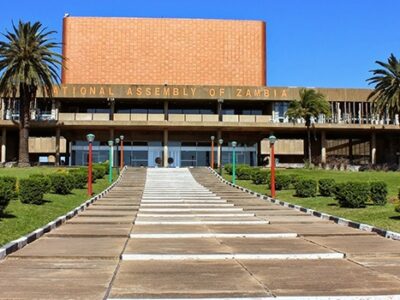Citizen journalism and traditional gatekeeping play crucial roles in the dissemination of information, each with distinct advantages and challenges.
Citizen journalism involves non-professional individuals creating and sharing news via platforms such as blogs and social media.
This approach democratises information, offers diverse perspectives and enhances transparency and accountability.
However, it also raises concerns about accuracy, reliability and potential biases.
To ensure the integrity of information in Zambia, the Media Institute of Southern Africa (MISA) Zambia has consistently emphasized the importance of protecting journalists.
“Media safety is paramount in ensuring that citizens get objective and accurate information,” the organization stated.
On the other hand, traditional gatekeepers—media outlets, editors, and professional journalists—control the flow of information by verifying facts, providing context, and setting the news agenda.
They play a vital role in maintaining news accuracy and holding power to account.
However, they can also limit diverse viewpoints, censor information, and perpetuate biases.
In a 2016 article, researcher Jacob Groshek argued for the necessity of gatekeeping journalists, particularly given the prevalence of clickbait, fake news and non-journalistic social media content.
Groshek stated that a regulated news system was essential for public education and credibility.
“There is a need for gatekeeping journalists, especially due to the high consumption rates of clickbait, fake news, and non-journalistic social media pages,” he wrote.
He highlighted that professional journalists must assert control over news construction and maintain a regulated system for educational and topical news.
Caroline Katotobwe from the Centre for Policy Dialogue (CDP) observed that the influx of online media and the resulting competition has significantly contributed to a decline in media ethics and professionalism.
She noted, “In today’s media environment, journalists seem incredibly incompetent when reporting news stories.
Their lack of a critical approach has led to the presentation of half-baked, skewed narratives that disappoint audiences.”
Katotobwe added that online media institutions, often lacking a physical presence, are somewhat beyond the reach of regulatory bodies.
This has led to difficulties in enforcing media ethics, with the Independent Broadcasting Authority (IBA) struggling to ensure adherence to ethical standards.
The 2021 African Media Barometer (AMB) Zambia report highlighted low reporting standards and a lack of fundamental journalism principles among young journalists.
It noted that inadequate training and experience have led to significant professional and ethical misconduct.
An abstract from Sage Journals further pointed out that reliance on untrained reporters with limited understanding of journalistic standards has become increasingly common, particularly in less democratic environments.
MISA Zambia Executive Director Lorraine Chisanga highlighted the role of the Access to Information (ATI) Law in empowering citizens to access crucial public information.
“The operationalization of this law signifies the government’s commitment to upholding the fundamental right to information, which is essential for the realization of other human rights and freedoms,” Chisanga said.
She emphasized that the ATI law fosters an environment conducive to informed decision-making and civic participation.
Chief Government Spokesperson Cornelius Mweetwa urged the media to reflect on their profession and their role in informing, educating, and entertaining the public.
He acknowledged the influence of citizen journalism and the need for a balanced approach that combines the strengths of both citizen journalism and traditional gatekeeping.
Ultimately, while citizen journalism challenges traditional gatekeepers, it also relies on them for validation, credibility, access to resources, and mentorship.
A balanced approach that integrates the strengths of both citizen journalism and traditional gatekeeping can lead to a more informed and engaged public.
WARNING! All rights reserved. This material, and other digital content on this website, may not be reproduced, published, broadcast, rewritten or redistributed in whole or in part without prior express permission from ZAMBIA MONITOR.












Comments